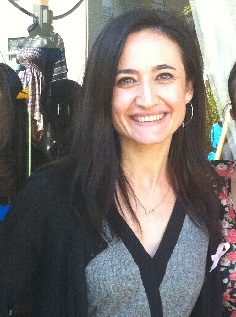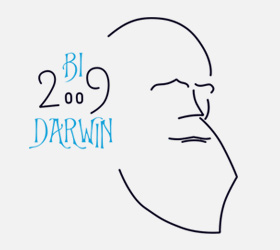 A research from the Universitat de València about censorship in audiovisual translation (TAV) bets on transparency in dubbing, subtitling and any other form of audiovisual translation. Maber Richart-Marset work analyses the factors that determinate the translation, in this case in dubbing from English into Spanish, of one of the scenes of the animation film ‘Shrek The Third/Shrek Tercero’ (Chris Miller and Raman Hui, 2007), where political correctness turns out to be a censorship factor.
A research from the Universitat de València about censorship in audiovisual translation (TAV) bets on transparency in dubbing, subtitling and any other form of audiovisual translation. Maber Richart-Marset work analyses the factors that determinate the translation, in this case in dubbing from English into Spanish, of one of the scenes of the animation film ‘Shrek The Third/Shrek Tercero’ (Chris Miller and Raman Hui, 2007), where political correctness turns out to be a censorship factor.
Mabel Richart-Marset, professor at the Faculty of Language Studies, Translation and Communication, suggests a method, the ‘genetic analysis of dubbing’, as the only tool that guarantees an almost absolute transparency of the whole process and allows to identify the responsibles of the manipulation and censorship acts. The film analysis allows the researcher to conclude the reasons for political correctness and self-censorship that occur, how it is a situation related to the morality-legality of the historic moment in which the audiovisual text appears in Spain and how this has determinated the self-censorship of the translator agent.
It is about one of the allusions to bullying in the original American texts. like the practise of ‘wedgies’ and ‘swirlies’. On this point, the film translator points out that today the issue of bullying it is not adequate, since the film is for children and young adults. In order to soften the meaning of the concepts, she uses ‘chewing gums’ (‘chicles’) and ‘stuck snots’ (‘mocos pegados’) in the chair of one of the characters.
To address this manipulation when changing from one text to the other, Mabel Richart points out that this fact is an example of how the ‘ideology’- the ability that a text has to absorb the other and change it due to political, cultural, social and ideological reasons, among much more- and the contradictions between different texts can deeply modify the meaning. ‘The translation proposal does not just manipulate the original text but it also causes a false image of reality. It is not unreasonable to refer to it in terms of censorship’, says the expert in the article ‘La censura de la corrección política: la traducción audiovisual a escena’, published in the magazine Quaderns de Filologia.
The next step in the audiovisual translation process, when the translated text passes to the adjuster agent, it reveals, also, how this proposal is rejected and the translator self-censorship is blocked and ‘wedgies’ is translated into ‘estirar de los calzoncillos’. ‘Swirlies’ was kept in the adjuster phase in the censored way. The final result shows that, in the words of the researcher of the Universitat de València, the English text and its Spanish version ‘keep a certain relation of equivalence’ in which, nevertheless, ‘the sense of concepts related to genital and anal parts of the body have been radically modified and, therefore, it is an ironic translation, quite far, unfortunately, from the audiovisual original text’.
‘The whole collective that works in the academic or professional community of audiovisual translation -professors, translators, adjusters, dubbing directors, subtitlers, etc.- we have the professional and moral obligation of look out for a translation without censorship, because by doing it we will, without any doubt, protecting our society’, confirms Mabel Richart.
Access to documentation: the black box of dubbing and subtitling
To guarantee transparency during the translation project, it is needed to have what the researcher calls black box of dubbing and subtitling, that includes de documents generated during the process of audiovisual translation. One of the aspects that complicates the analysis of the adaptation process of a text is the ‘censorship’ practised by ‘extern’ agents of the TAV such as the producer, the dubbing studies or television channels, among others. The black box is what researchers have to face to access the documentation generated in the audiovisual translation process and especially when dubbing any foreign film into Spanish. Most of the time, the contents of this black box are under lock and key, and it impedes the access to the general public.
Mabel Richart-Marset is professor of the Universitat de València in the Department of Language Theory and Communication Sciences, where she teaches conference interpreting as part of the Degree in Translation and Interlinguistic Mediation She is part of the Master's Degree in Creative and Humanistic Translation, where she teaches cinema and literature. She also coordinates the area of Translation and Interpretation of the Department of Language Theory and Communication Sciences and she is guest professor in different universities in the United States.
Full-time lecturer in Audiovisual Communication, she is the author of five books and several articles on film studies, audiovisual translation, conference interpreting and discourse analysis. Among his books, stand out ‘La alegría de transformar: teorías de la traducción y teoría del doblaje’ (Tirant lo Blanch 2009); ‘Fraseología y traducción: una semiótica difusa’ (PUV 2010); e ‘Ideología y Traducción. Por un análisis genético del doblaje’ (Biblioteca Nueva 2012).
Article:

















